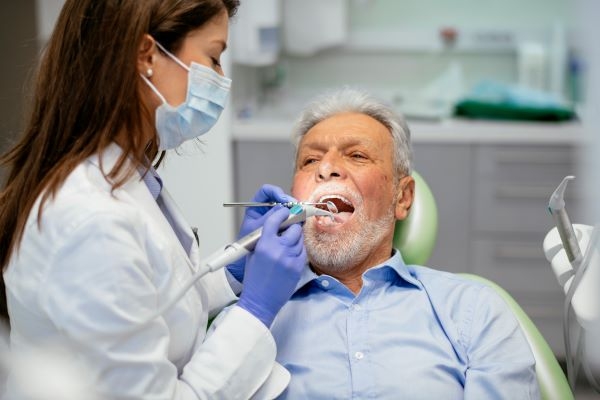-
The liver is your body’s largest internal organ, performing 500 essential functions. And while it may wear many hats, its most important job is to process nutrients in the digestive system, break down fat, eliminate toxins and balance hormones.
When it comes to your digestive system, anything you consume -- whether it be food, fluids or even medication -- must pass through the liver to be processed. That’s why it’s so important to make sure anything you’re putting into your body will not harm the liver, or hinder it from doing its job.
So what can harm the liver?
There are many factors that can contribute to liver damage, disease, and in worst case, cancer. Here are some of the most common culprits:
- Alcohol: Drinking alcohol -- particularly in large quantities -- can have a detrimental effect on your liver. It can cause irreparable damage to liver cells and also increase your risk of developing liver disease, with common alcohol-induced diseases including alcoholic fatty liver disease, alcoholic hepatitis, and alcoholic cirrhosis.
- Smoking: Tobacco has long been known for its harmful effects on the body -- and the liver is no exception. Not only can smoking lead to liver cancer, but it can also speed up the progression of liver disease for sufferers by increasing the toxic effect of some medications.
- Poor diet and obesity: Being overweight or obese, particularly around the waist, can increase your risk of developing non-alcoholic fatty liver disease, or ‘fatty liver’. This is due to excess calories being consumed, causing fat to build up in the liver cells. When this happens, your liver can become inflamed and is unable to function.
Looking after your liver

-
How can you keep your liver healthy?
While your liver does actually have the ability to restore itself if damaged (if the damage is not too advanced), it’s still important to make sure you look after it by following a healthy diet and lifestyle.
Here are some useful tips to keep your liver in good shape:
- Drink the right fluids: Increase your water intake, while limiting consumption of alcohol, caffeine and sugary drinks.
- Increase your fruit and veg intake: For a healthy liver, it’s important you’re including a sufficient amount of fruit and vegetables, such as broccoli, spinach and blueberries, in your diet each day.
- Silence your sweet tooth: Limit your refined sugar intake. If you feel like something sweet, opt for a piece of fruit or a square of dark chocolate. To learn more about the effects of sugar on the body, check out this video.
- Make friends with ‘good' fats: Make sure to include healthy fats and essential fatty acids in your diet. These are commonly found in nuts, olive oil and oily fish. Avocado is also a great option, as it helps produce glutathione -- necessary for the liver to cleanse harmful toxins.
Read more about keeping your liver healthy, and more on how your diet can affect your health.
-
Do you need an electric toothbrush?
Which toothbrush scrubs up best?
-
Dietitian, nutritionist or naturopath: What’s the difference?
Who should you see for professional dietary advice?
-
5 ways to eat healthy while travelling
Come home feeling refreshed, fit and energised.
-
How often should you get your teeth cleaned?
We spoke to Medibank Members’ Choice Advantage dentist Dr Jonathan Cichero to find out.
-
Daily habits for good oral health
Do you really need to floss? Is an electric toothbrush better than a manual one? Find out which habits to make (and which ones to break) for better oral health.
-
How to conquer your fear of the dentist
Dr Merrilyn Hooley's tips for a less stressful dental appointment.
Subscribe to receive the best from Live Better every week. Healthy recipes, exercise tips and activities, offers and promotions – everything to help you eat, move and feel better.
By clicking sign up I understand and agree to Medibank's privacy policy





